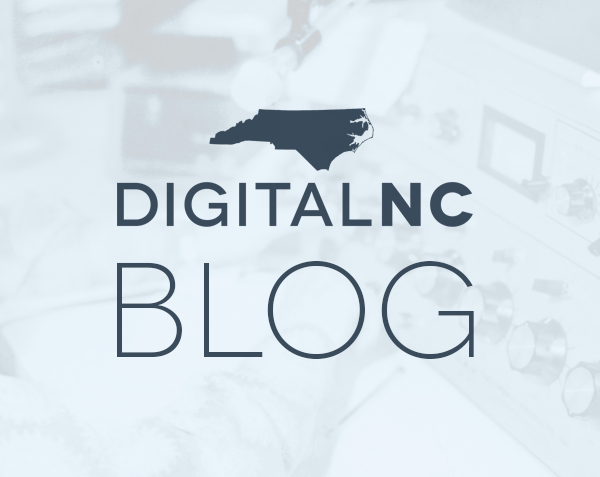Viewing search results for "Haywood County Public Library"
View All Posts
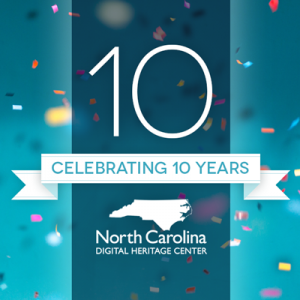 It’s DigitalNC.org’s 10th birthday! Though we had hoped to be in the office celebrating, we’re still taking time to look back at years of hard work and the collaborative spirit that makes the North Carolina Digital Heritage Center (NCDHC) what it is!
It’s DigitalNC.org’s 10th birthday! Though we had hoped to be in the office celebrating, we’re still taking time to look back at years of hard work and the collaborative spirit that makes the North Carolina Digital Heritage Center (NCDHC) what it is!
To date, NCDHC has partnered with 273 libraries, museums, alumni associations, archives, and historic sites in 98 of North Carolina’s 100 counties and we’re growing all the time. Our website currently includes 4.2 million images and files. We share this accomplishment with every institution we’ve worked with. We’d never have gotten to 10 years without staff (permanent, temporary, and student!), our partners, or the network of colleagues all over North Carolina who have encouraged, advised, and supported our work.
As we approached our anniversary, we realized that our website lacked a synopsis of how NCDHC came to be, and our history. So read on for a brief look at how we got started and our major milestones.
Our History
The North Carolina Digital Heritage Center was one outcome of a comprehensive effort by the state’s Department of Cultural Resources (now the Department of Natural and Cultural Resources) to survey and get a broad overview of the status of North Carolina cultural heritage institutions. That effort was entitled NC ECHO (North Carolina Exploring Cultural Heritage Online) and was funded by the Institute of Museum and Library Services (which also supports us – thanks IMLS). A major goal of NC ECHO was a multi-year needs assessment. NC ECHO staff visited hundreds of cultural heritage institutions throughout the state to collect data and interview curators, librarians, volunteers, archivists, and more. Many of our partners still remember their visits!
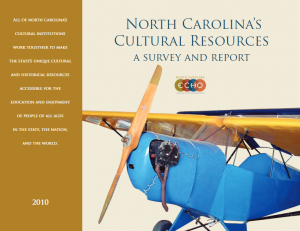 Data collected at these site visits was combined with survey responses to reveal a “state of the state,” summarized in a 2010 report, cover pictured at right. The assessment revealed a lot but, specific to digitization, staff found that nearly three-quarters of the 761 institutions who completed the survey had no digitization experience or capacity. Members of the Department of Cultural Resources (which includes the State Library, State Archives, and multiple museums and historic sites) began brainstorming with other area institutions about a way to help efficiently and effectively provide digitization opportunities. While the NC ECHO project offered digitization grants, workshops, and best practices, an idea emerged of a centralized entity that could assist institutions that didn’t have the capacity to do the work in house. The State Library of North Carolina and UNC-Chapel Hill Libraries joined together to create such an entity: the North Carolina Digital Heritage Center. The Center would be located in Chapel Hill, taking advantage of its central location and the digitization equipment and expertise already available in Wilson Special Collections Library. The State Library would provide funding, guidance, and ongoing promotion and support of the Center’s services.
Data collected at these site visits was combined with survey responses to reveal a “state of the state,” summarized in a 2010 report, cover pictured at right. The assessment revealed a lot but, specific to digitization, staff found that nearly three-quarters of the 761 institutions who completed the survey had no digitization experience or capacity. Members of the Department of Cultural Resources (which includes the State Library, State Archives, and multiple museums and historic sites) began brainstorming with other area institutions about a way to help efficiently and effectively provide digitization opportunities. While the NC ECHO project offered digitization grants, workshops, and best practices, an idea emerged of a centralized entity that could assist institutions that didn’t have the capacity to do the work in house. The State Library of North Carolina and UNC-Chapel Hill Libraries joined together to create such an entity: the North Carolina Digital Heritage Center. The Center would be located in Chapel Hill, taking advantage of its central location and the digitization equipment and expertise already available in Wilson Special Collections Library. The State Library would provide funding, guidance, and ongoing promotion and support of the Center’s services.
At its beginning, the Center’s staff digitized small collections of college yearbooks, needlework samplers, postcards, and photographs and made them available through DigitalNC.org. They went to speak with organizations interested in becoming partners, and began taking projects for digitization. Here’s a list of NCDHC’s earliest partners, who came on board during late 2009 and 2010.
Though we’re not positive of the exact date, we believe DigitalNC.org launched on or near May 12, 2010. Here’s a look at that original site!
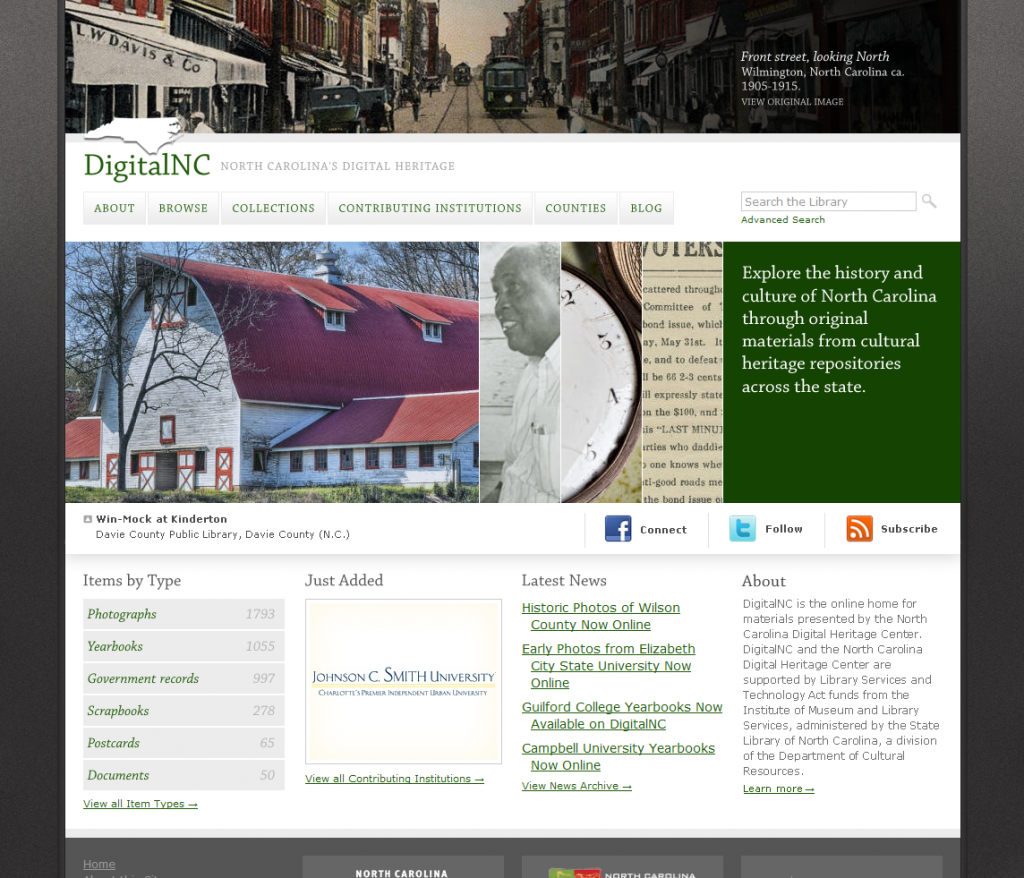
In 2011, word about the Center spread. Staff started responding to demand from partners, incorporating newspaper digitization. In late 2012, also in response to popular demand, the Center began digitizing high school yearbooks. Yearbooks and newspapers are some of the most viewed items on DigitalNC, and they remain a significant portion of our work to this day.
In 2013, NCDHC joined the Digital Public Library of America (DPLA) as North Carolina’s “service hub.” The DPLA collects information from digitized collections all over the nation and provides it together in one searchable interface at dp.la. Because of our participation, users can browse and search for collections from North Carolina alongside items from institutions around the country.
Throughout the years, we’ve tried to expand services to fit our partners’ goals. In 2015, we trialed an audiovisual digitization project that incorporated the first films into DigitalNC. Today, we partner with the Southern Folklife Collection at Wilson Special Collections Library to provide audio digitization on an ongoing basis. In 2016, we added a new partner category – alumni associations – to support more digitization of African American high school yearbooks and memorabilia. The following year, we announced a focus on digitization of items documenting underrepresented communities. We also started going on the road with our scanners! For institutions that don’t have the staff time or resources to travel to Chapel Hill, we offer to come for a day or two and scan on site.
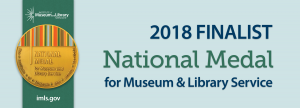 2018 and 2019 saw several major milestones. We were nationally recognized as an Institute of Museum and Library Services National Medal finalist, and we began a major software migration. Both were a tribute to the size and extent of our operation, though in different ways. As we’ve approached our 10th anniversary we’ve focused on working with partners in all 100 of North Carolina’s counties. Whether you’re rural or metropolitan, we believe your history is important and should be shared online.
2018 and 2019 saw several major milestones. We were nationally recognized as an Institute of Museum and Library Services National Medal finalist, and we began a major software migration. Both were a tribute to the size and extent of our operation, though in different ways. As we’ve approached our 10th anniversary we’ve focused on working with partners in all 100 of North Carolina’s counties. Whether you’re rural or metropolitan, we believe your history is important and should be shared online.
One of the ways we’re commemorating this anniversary is to ask our partners and stakeholders how they think we’ve impacted them and their audiences. Join us here on the blog in the second half of 2020 as we share these brief interviews, reflect, and celebrate. Thank you for reading, enjoy the site, and here’s to another 10 years of making North Carolina’s cultural heritage accessible online!


A headline from the February 9, 1956 issue.
Issues of the Waynesville Mountaineer newspaper from 1952-1956 are now available on DigitalNC. These issues were provided by our partner, Haywood County Public Library, and join previously digitized issues dating back to 1925. During the 1950s, the Waynesville Mountaineer was published twice a week–on Mondays and Thursdays, using the tagline “All the news most of the time–The most news all the time.”
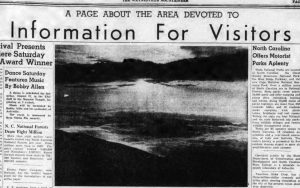
A mountain view from the August 16, 1954 issue.
This paper served individuals in and around Waynesville, North Carolina. Coverage was mainly focused on local news and included stories on politics, economic forecasts, events, clubs, and more. Because of Waynesville’s proximity to Great Smoky Mountains National Park, the newspaper also included a dedicated section titled “Information for Visitors” that specifically addressed the needs of tourists and included sightseeing tips and information on Park happenings.
To browse through issues of the Waynesville Mountaineer, click here. To see more materials from Haywood County Public Library, visit their DigitalNC partner page, or take a look at their website.
The following microfilmed newspapers were selected for digitization in 2017-2018. Thanks to supplemental funding from the State Library of North Carolina, we were able to complete more reels than in previous years. Reels were chosen from nominations according to our Criteria for Selecting Newspapers to Digitize from Microfilm.
| Title |
Years |
Nominating Institution |
| Alamance Gleaner (Graham, N.C.) |
1927-1947 |
Alamance County Public Libraries |
| Carolina Indian Voice (Pembroke, N.C.) |
1977-1995 |
UNC Chapel Hill |
| Carteret County News-Times (Morehead City, N.C.) |
1948-1960 |
Carteret County Public Library |
| Charlotte Post |
1971-1987 |
Johnson C. Smith University |
| The Cherokee Scout (Murphy, N.C.) |
1944-1988 |
Murphy Public Library |
| Duplin Times (Warsaw, N.C.) |
1962-1985 |
Duplin County Library |
| Enterprise (Williamston, N.C.) |
1934-1942 |
Martin Memorial Library |
| Farmville Enterprise |
1942-1947 |
Farmville Public Library |
| Franklin Press and the Highlands Maconian (Franklin, N.C.) |
1943-1960 |
Fontana Regional Library |
| The Franklin Times (Louisburg, N.C.) |
1925-1944; 1963-1969 |
Louisburg College |
| Hertford County Herald (Ahoskie, N.C.) |
1914-1923 |
Chowan University |
| Journal-Patriot (North Wilkesboro, N.C.) |
1947-1950 |
Wilkes County Public Library |
| Mount Airy News |
1917-1929 |
Surry Community College |
| News-Record (Marshall, N.C.) |
1976-1988 |
Madison County Public Library |
| Perquimans Weekly (Hertford, N.C.) |
1944-1989 |
Perquimans County Library |
| Pilot (Southern Pines, N.C.) |
1948-1965 |
Southern Pines Public Library |
| The Roxboro Courier (Roxboro, N.C.) |
1927-1935 |
Person County Public Library |
| Smithfield Herald |
1901-1911 |
Johnston County Heritage Center |
| Transylvania Times (Brevard, N.C.) |
1933-1940 |
Transylvania County Library |
| Watauga Democrat (Boone, N.C.) |
1950-1963 |
Watauga County Public Library |
| Waynesville Mountaineer |
1952-1956 |
Haywood County Public Library |
| Winston-Salem Chronicle |
1997-2016 |
Forsyth County Public Library |
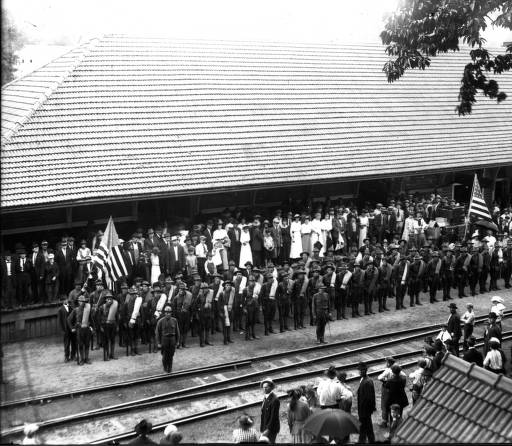
Company H, WWI, 1st North Carolina Infantry of the National Guard, departed Waynesville’s train depot on June 26, 1916. They guarded the Mexican border and returned to Waynesville in February 1917. In July 1917 they then were sent to France during WWI. Courtesy of Haywood County Public Library.
Last Thursday, April 6, 2017, marked the 100th anniversary of the United States’ entry into World War I. Over the next year, many cultural heritage institutions around the country are highlighting the materials they hold related to the “Great War.” We wanted to highlight some of the fantastic local North Carolina materials we have digitized for our partners that document the World War I perspective from North Carolinians’ eyes.
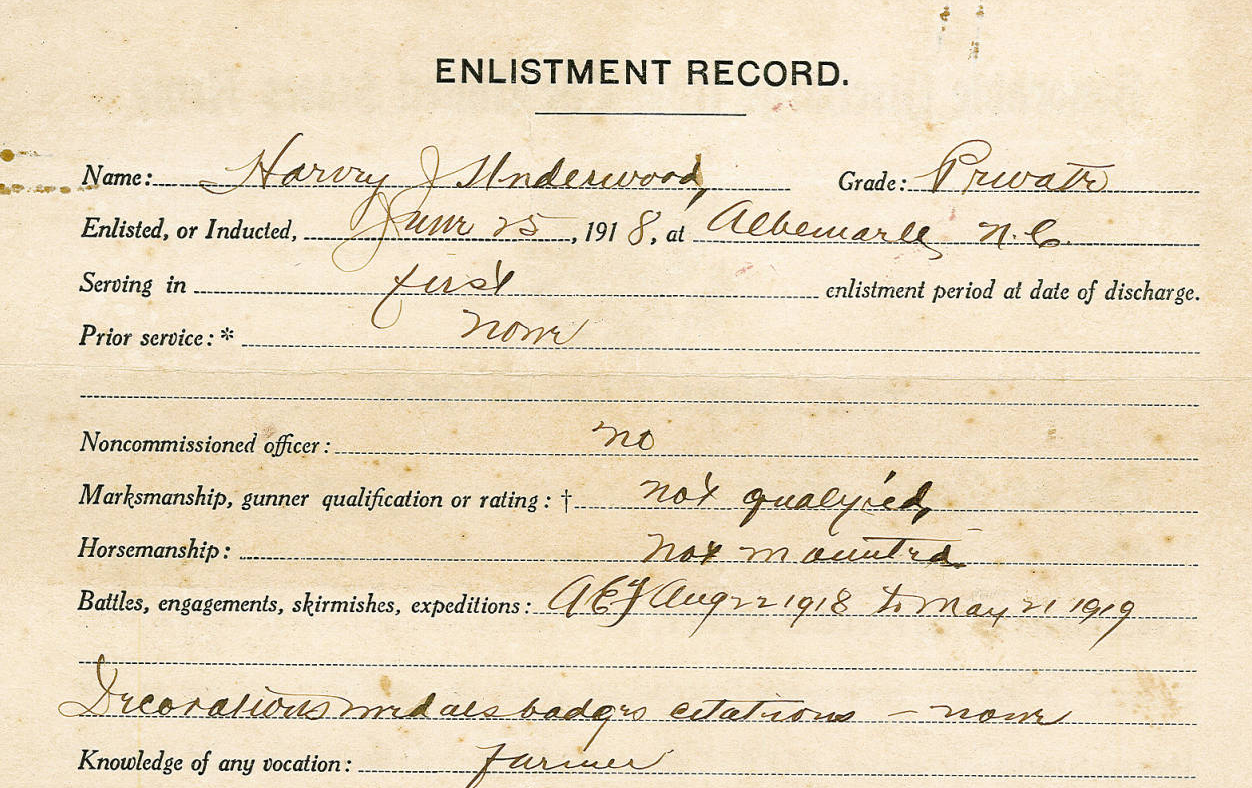

Service records, photographs, news clippings and letters back home from communities across the state are digitized here on DigitalNC. From Wilson County, we have a set of records from 70 men that served in the war that the United Daughters of the Confederacy collected and a scrapbook that includes letters from a Robert Anderson before he was wounded in action and died in France. From Stanly County, we have an enlistment record that includes the amount Harvey Jarvis Underwood was paid to serve, and a history of the service records of Stanly County men who served in the war. From the Grand Lodge of the Ancient, Free, and Accepted Masons of North Carolina, the NCDHC digitized a list of all the North Carolina masons who died in World War I.
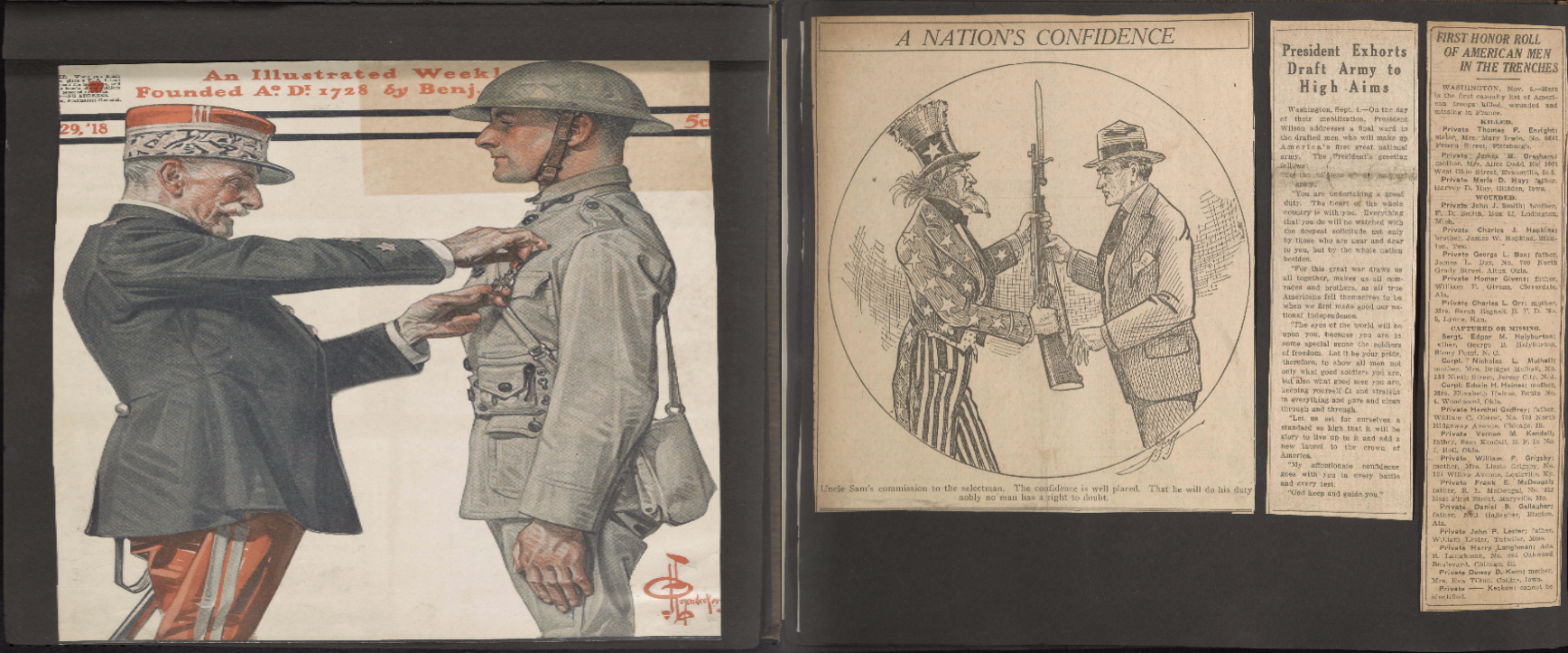
Several scrapbooks from Elon University detail the students’ view of the war as well as what college life during World War I looked like here in North Carolina.
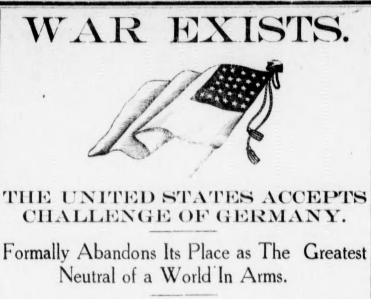
Headline from Page 2 of the April 12, 1917 edition of the Roanoke News
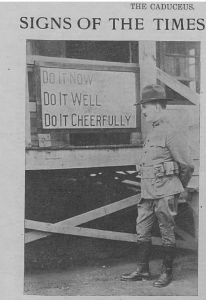
The richest source of information on World War I and North Carolina on DigitalNC may very well be the many local newspapers we’ve digitized that contain the local perspective on the war, including some quite subdued headlines announcing the US’s entry. DigitalNC also hosts several World War I camp and hospital newspapers including the Trench and Camp from Camp Greene and the Caduceus, the paper of the Base Hospital at Camp Greene. Both are from Charlotte Mecklenburg Library.
To view more materials from World War I, check out a search of our collections here. And to learn more about World War I materials from across the state, visit the institutions highlighted in this blog post from our colleagues over at the State Archives of North Carolina.
After seeing excellent “Dog Days of Summer” blog posts from our friends at NC State and Duke, we couldn’t resist following up with a few of our favorites from the many dog photos on DigitalNC.
No North Carolina-related dog feature would be complete without a Plott Hound. This photo from the Haywood County Public Library shows not just any Plott Hound, but the original: “Dan” was the first Plott Hound to be registered after the United Kennel Club recognized the breed in 1946.
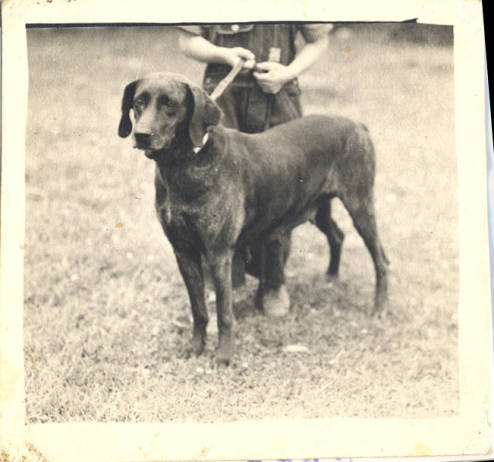
The prize for cutest dog photo on DigitalNC has to go to this one, puppies in a basket, from the William Hoke Sumner collection at UNC-Charlotte.
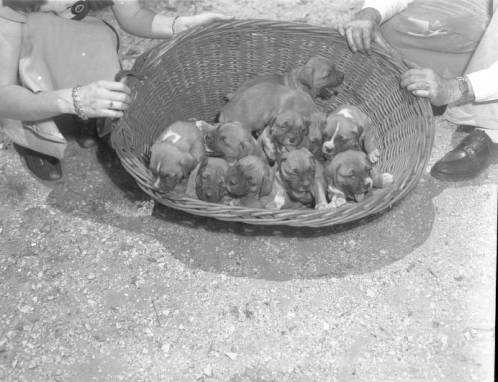
This young man with a pack of Basset Hounds is heading to a dog show in Pinehurst in 1935. Photo from the Tufts Archives.
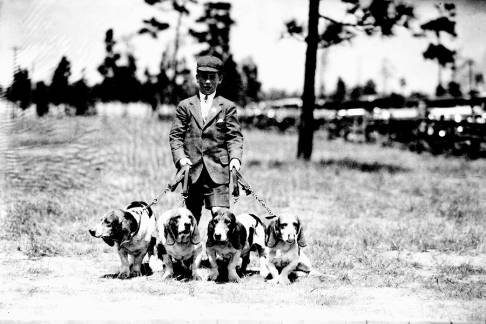
No hunting party would be complete without a dog. This photo, from the Davie County Public Library, shows a group at the Coollemee Plantation.
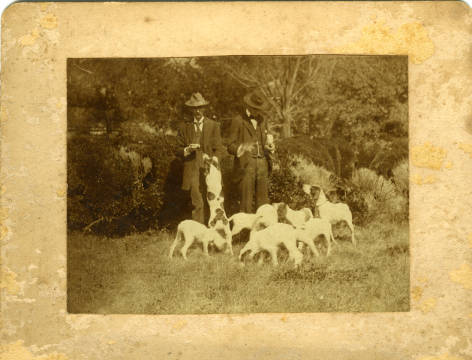
As this 1951 photo from the Braswell Memorial Library in Rocky Mount attests, there is no better reading companion than a dog.
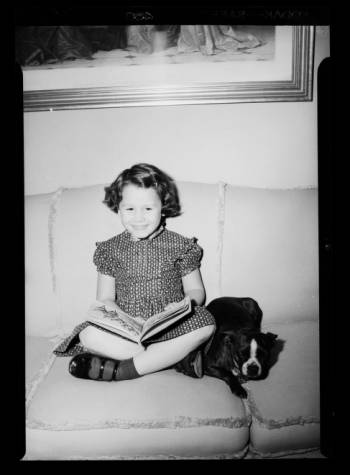
And no dog loved books more than Jim the Library Dog, a fixture on the front seat of the Rockingham County Bookmobile as it traveled around the county in the 1930s. Photo from the Rockingham County Public Library. You can see Jim in action in the silent film showing the bookmobile that we recently shared online.
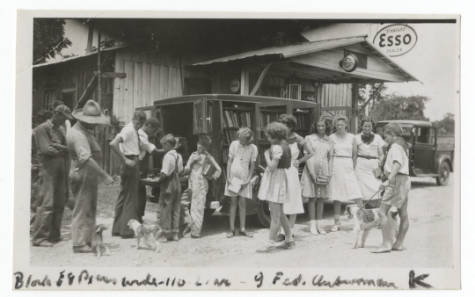
But our favorites have to be the dogs we spot occasionally in old yearbooks. Apparently UNC-Chapel Hill was a hotbed of canine education in 1977. We found two dogs in the Yackety Yack from that year. The photo at top is identified as Sarah Abercrombie, a senior from Dixmont, Maine, while the bottom photo shows Poco Medford, a graduate student from Carrboro. We trust that both Sarah and Poco put their education to good use and went on to long and distinguished careers.

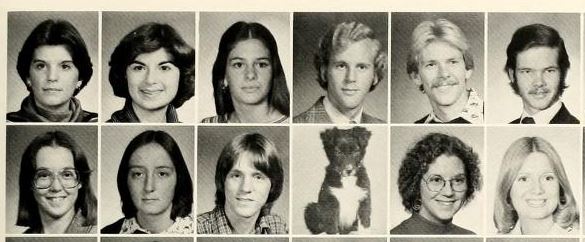
The following newspapers were digitized from microfilm in 2014.
With the recent addition of student yearbooks from Lees-McRae College, we are very pleased to announce the North Carolina Digital Heritage Center has now worked with 100 different institutions. These 100 content partners have contributed an incredible variety of materials related to the history and culture of North Carolina, all of which is easily and freely accessible at DigitalNC.org.
When we began work on the Digital Heritage Center in late 2009, it was always our goal to reach out to as many different organizations as possible. Here’s the breakdown on types of institutions we’ve worked with so far (some institutions represent multiple types, which is why the numbers add to more than 100):
23 Public Libraries
14 Community Colleges
14 Public Colleges and Universities
32 Private Colleges and Universities
9 Historically Black Colleges and Universities
1 Cultural Heritage Organization
3 Historic Sites
3 Historical Societies
8 Museums
4 Private Libraries and Archives
While we’ve worked with institutions in all parts of the state, we have yet to reach every county. Our partners come from 51 different counties, leaving just under half of the state’s counties yet to be represented. In coming years, we’ll continue to reach out the remaining counties, as well as to organizations of all types and sizes who are interested in working with us on our shared goal of promoting and increasing access to North Carolina’s cultural heritage.
Football season is in full swing, a good time to browse the many football-related images on DigitalNC. I found 49 football-related images in the Images of North Carolina collection, and there are countless more in the college and university yearbooks. Here are some of my favorites:
This photo shows the Davidson College football team in 1906, just 18 years after the first collegiate football game was played in North Carolina.
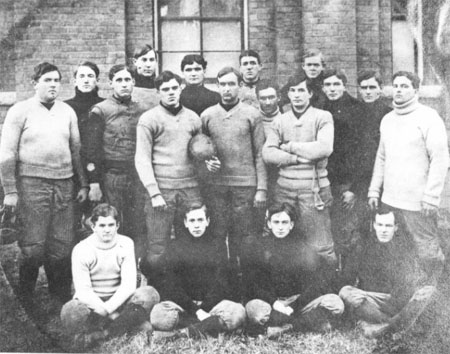
The action shot of a punter seems to be a popular subject for sports photographers. The photo at top is from the Braswell Memorial Library (Rocky Mount, N.C.); the one at bottom is from the Tufts Archives (Pinehurst, N.C.).
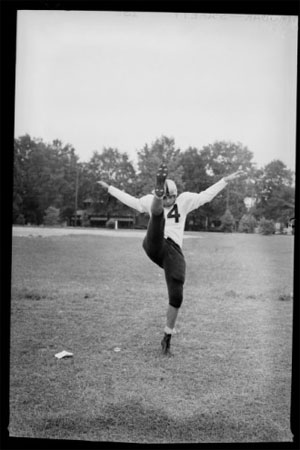
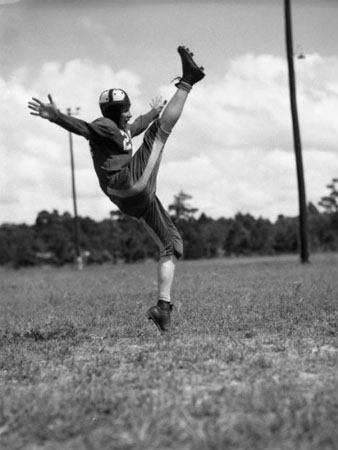
There are several good photos of high school football players and teams on DigitalNC. The top one here shows a player from Lansing High School in Ashe County; the one in the middle of the team from Davie County High School in 1961, and the photo at bottom shows the team from Waynesville Township High School in 1927.
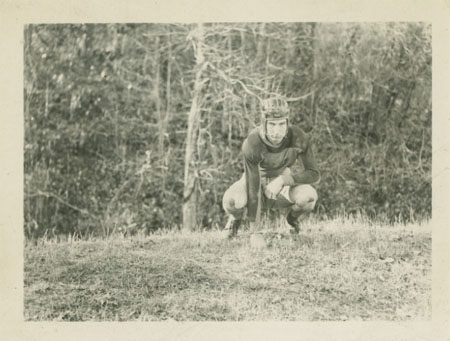
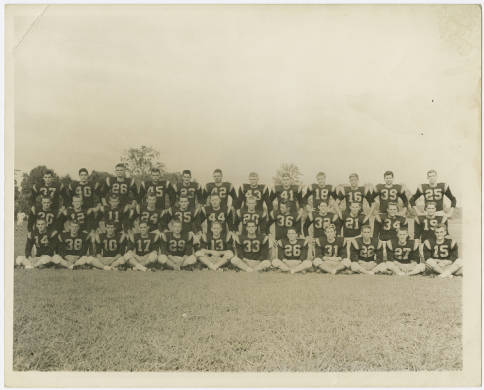
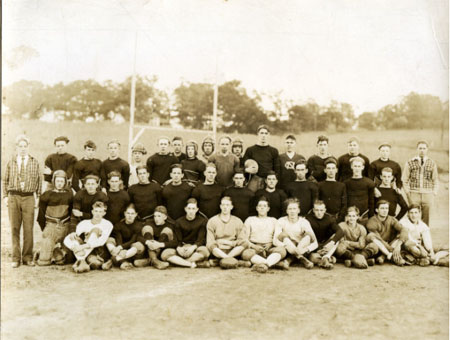
These last three images above are shared by Ashe County Public Library (top), Davie County Public Library (middle), and Haywood County Public Library (bottom).
 It’s DigitalNC.org’s 10th birthday! Though we had hoped to be in the office celebrating, we’re still taking time to look back at years of hard work and the collaborative spirit that makes the North Carolina Digital Heritage Center (NCDHC) what it is!
It’s DigitalNC.org’s 10th birthday! Though we had hoped to be in the office celebrating, we’re still taking time to look back at years of hard work and the collaborative spirit that makes the North Carolina Digital Heritage Center (NCDHC) what it is! Data collected at these site visits was combined with survey responses to reveal a “state of the state,” summarized in a 2010 report, cover pictured at right. The assessment revealed a lot but, specific to digitization, staff found that nearly three-quarters of the 761 institutions who completed the survey had no digitization experience or capacity. Members of the Department of Cultural Resources (which includes the State Library, State Archives, and multiple museums and historic sites) began brainstorming with other area institutions about a way to help efficiently and effectively provide digitization opportunities. While the NC ECHO project offered digitization grants, workshops, and best practices, an idea emerged of a centralized entity that could assist institutions that didn’t have the capacity to do the work in house. The State Library of North Carolina and UNC-Chapel Hill Libraries joined together to create such an entity: the North Carolina Digital Heritage Center. The Center would be located in Chapel Hill, taking advantage of its central location and the digitization equipment and expertise already available in Wilson Special Collections Library. The State Library would provide funding, guidance, and ongoing promotion and support of the Center’s services.
Data collected at these site visits was combined with survey responses to reveal a “state of the state,” summarized in a 2010 report, cover pictured at right. The assessment revealed a lot but, specific to digitization, staff found that nearly three-quarters of the 761 institutions who completed the survey had no digitization experience or capacity. Members of the Department of Cultural Resources (which includes the State Library, State Archives, and multiple museums and historic sites) began brainstorming with other area institutions about a way to help efficiently and effectively provide digitization opportunities. While the NC ECHO project offered digitization grants, workshops, and best practices, an idea emerged of a centralized entity that could assist institutions that didn’t have the capacity to do the work in house. The State Library of North Carolina and UNC-Chapel Hill Libraries joined together to create such an entity: the North Carolina Digital Heritage Center. The Center would be located in Chapel Hill, taking advantage of its central location and the digitization equipment and expertise already available in Wilson Special Collections Library. The State Library would provide funding, guidance, and ongoing promotion and support of the Center’s services. 2018 and 2019 saw several major milestones. We were nationally recognized as an Institute of Museum and Library Services National Medal finalist, and we began a major software migration. Both were a tribute to the size and extent of our operation, though in different ways. As we’ve approached our 10th anniversary we’ve focused on working with partners in all 100 of North Carolina’s counties. Whether you’re rural or metropolitan, we believe your history is important and should be shared online.
2018 and 2019 saw several major milestones. We were nationally recognized as an Institute of Museum and Library Services National Medal finalist, and we began a major software migration. Both were a tribute to the size and extent of our operation, though in different ways. As we’ve approached our 10th anniversary we’ve focused on working with partners in all 100 of North Carolina’s counties. Whether you’re rural or metropolitan, we believe your history is important and should be shared online.























